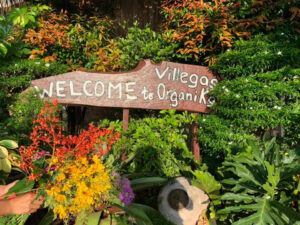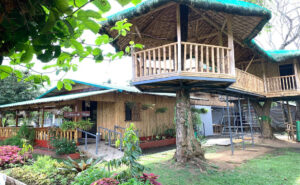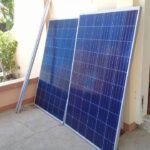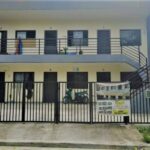A Profile of Success: Pablito “Pabs” M. Villegas
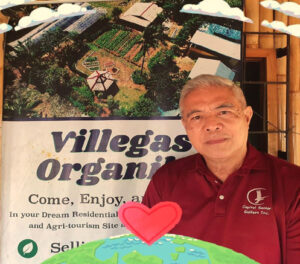
The town of Malvar, which is among the smallest in the Province of Batangas, is nestled between two bustling cities: Lipa to its south; and Tanauan to its north. The northern town was named after one of the province’s most illustrious and fearless warriors, Gen. Miguel Malvar. Malvar is home to Villegas Organic and Hobby (VOHO) Eco-Tourism Farms under the brand name “VILLEGAS ORGANIKS”.
VOHO Eco-Tourism Farm is a fully integrated hobby and eco-tourism farm, complete with 4 air-conditioned rooms, 28 people dormitory-style rooms and 11 al fresco rooms for budget travelers. It features two (2) tree houses for the adventurous type, a pool and a pavilion which can host small to medium-sized events like weddings, birthdays, reunions, and parties. It also has an organic technology demonstration (techno-demo) farm, and an entrepreneurship and agribusiness training center. There are also smaller micro residential organic farm lots available for sale (1,000 to 2,000 sqm) for those who want to create and operate their own hobby micro farms.
Villegas Organiks, started as a hobby at the 2-hectare farm of the family of Mr. Pablito M. Villegas, which was purchased from his retirement money from Landbank in 1991. While residing in Quezon City to attend to his international consultancy jobs, it has become a habit for Pabs to make weekly travels to Malvar to visit his 80 plus year-old widow and aging mother. It was during his weekly visits that he mulled on taking up planting edible garden plants and vegetables as a hobby to make the family’s piece of idle land, productive. The original and true -blooded plantito!
Seeing the potential of the property to attract possible tourists and investors, with his earnings from his consulting jobs plus their family savings, he bought an adjoining property in 2001, which is about 1.5 hectares coconut lands. He planted about a hectare of the property with high-value vegetables like lettuce, fruit trees, and coconut trees. He also set up a water system to make his farm sustainable. He subdivided about 2.5 hectares into smaller lots at 1,000 to 3,000 sqm per lot with the intention of selling these lots to those who are interested in micro-farming. So far, a total of 2 hectares had been sold to micro-farm entrepreneurs, which proceeds he has invested in expanding his eco-tourism facilities and purchasing another 3-hectare farm in adjoining Barangay San Gregorio and San Pioquinto, Malvar. All in all, Mr. Villegas’ family owns and operates around 8 hectares of agricultural lands.
While he was busy with his consultancy work (with intermittent assignment tours in Papua Guinea, Tonga, Nepal, Sri Lanka, and Indonesia from 1988 to 2003), he had an overseer and two to three farm hands to tend to his farm. He also had free range chicken breeders and growers. But then, he realized that the farm’s income was only enough for the salaries of the overseer and his farm laborers, plus minimal surplus. While he no longer had to dip into his pockets for the farm’s upkeep, there was also not enough money coming in. It was not a good investment then, other than financially supporting three families and hired laborers.
Recently, Pabs decided to make his farm overseers and young graduates as agripreneur partners, not as employees or farm managers. Whatever the farm earns (revenues less cost of production), he divides it equally between them and himself. The sense of ownership on the part of the workers was what motivated them to toil harder. By this time, the farm has already become a self-sustaining endeavor with farm lot sales proceeds providing its expansion and sustainability.
“When you shall eat of the fruit of your hands, you will be happy and it will be well with you.”
Psalm 128:2
What started as a hobby gave birth to a vision – a vision that grew big. He knew that this would require hard work and perseverance. He would convert this place as an eco-tourism spot, very much like what he saw in Bali, Indonesia, attracting tourists while showcasing the creativity of our Filipino artisans and the beauty and sturdiness of our local materials. At the same time, he would make this a sustainable training and learning center for those wanting to be part of the growing breed of agripreneurs. In him is the willingness to share his knowledge, skills, and expertise in farming that he has gained in through his years of farming as a poor farm boy to adolescence and of stay and employment at UP, Department of Agriculture and LANDBANK and though his consultancy stint in the United Nations, Asian Development Bank, World Bank, and bilateral donors like USAID, EU, Dutch Aid, Aus Aid, to mention a few.
“But it’s not always a rose garden,” Pabs says as he recounts the challenges and constraints that came his way.
“It’s difficult to get people and even your own relatives whom you can trust! In the early years of setting up this farm, there were people who would steal your farm facilities and even your produce. Mga taong tamad at walang malasakit.” He addressed this by making them his partners under the Batangas “Paiwi System” and fair and equitable agripreneurship scheme instead of hiring farm employees.
In 2014, there was typhoon Glenda which almost wiped out the entire place. His poultry, and piggery were blown away and gone. His mango trees were devastated. Even before Glenda, there was the serious infestation of coconut scale insects or “cocolisap” that fell about 50% of his coconut trees. The structures he built felled to the ground. The place needed a major rehabilitation.
The CBCMPC came to Pabs’ rescue as he was able to get a P1.0 to P2.0 Million loan to help him in his cash flow problems. Things were picking up with cash flows from farm lot sales coming in, but then five years later, the pandemic struck. And like most businesses related to farming and tourism, it suffered a major setback. The CBCMPC again helped Pabs get on its feet with another P1.4 Million restructured loan accommodation with an up to date payment now.
As the post-Covid 19 pandemic things becoming to normalize, Villegas Organiks is now positioning itself in surmounting the looming food crises with the mobilization of its partner cooperative, Malvar Organic Farmers Agriculture Cooperative (MOFAC). Together, they are now implementing the Farmers and Fisherfolks Clustering and Consolidation (F2C2) Program dubbed as Malvar Bayanihan Agribusiness Clusters (BAC). The F2C2 /BAC Program of Malvar is now under implementation with the support of Malvar LGU and DA Regional Field Office 4-A. Villegas Organiks is also implementing the Moringa Agribusiness Value Chain from Seeds to Nutrition Plate Project and Vanilla Cultivation Project.
Once again, Villegas Organiks is attracting local and foreign tourists to visit the farm and get a glimpse of what farm life is all about and what is Filipino hospitality and culture at its best. With the looming food crises, Mr. Villegas is also bullish in seeing more investors coming in micro residential organic farming and agri-entrepreneurship.
Indeed, now is the time to indulge and engage in micro residential farming for food, nutrition, and health security and wellness. To top it all, Mr. Villegas concludes: Indeed, in organic agriculture, “We care for your health, we nurture the earth!”
